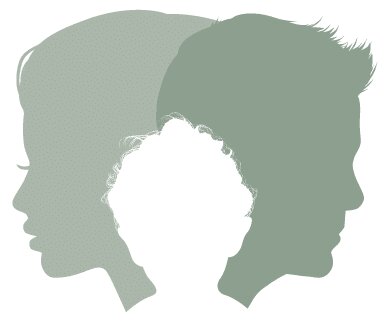Best General Litigation Lawyers in Viborg
Share your needs with us, get contacted by law firms.
Free. Takes 2 min.
List of the best lawyers in Viborg, Denmark
About Litigation Law in Viborg, Denmark
Litigation refers to the process of resolving disputes through the court system. In Viborg, Denmark, litigation encompasses both civil and commercial cases, as well as certain administrative disputes. The city is an important legal hub in the Central Jutland Region, with the Western High Court (Vestre Landsret) located in Viborg and handling significant cases for the area. The Danish legal system is based on civil law principles and aims for transparency, fairness, and efficiency in resolving disputes. Litigation in Viborg follows the procedures set by Danish law, ensuring that parties have the right to present their case, challenge opposing arguments, and appeal decisions when necessary.
Why You May Need a Lawyer
Many people seek legal assistance in litigation for a range of reasons. Common situations include:
- Business disputes, such as breach of contract or partnership disagreements
- Personal injury claims after accidents
- Property matters, including landlord-tenant disagreements
- Inheritance and estate disputes
- Employment disagreements, such as wrongful termination
- Debt collection and financial disputes
- Family law issues, including divorce and child custody
- Disagreements with public authorities or administrative decisions
Litigation can be complex and stressful, especially when language barriers or unfamiliar procedures are involved. A local lawyer in Viborg can help you navigate Danish laws, ensure procedural compliance, and advocate for your interests in court or during settlement discussions.
Local Laws Overview
Litigation in Viborg operates under Danish Act on Civil Procedure (Retsplejeloven), which sets out how cases must be initiated and conducted. Key aspects include:
- All claims, regardless of value, can be filed at the District Court (Retten i Viborg), with more significant or complex cases escalated to the Western High Court
- There is a strong emphasis on mediation and court-facilitated settlement before proceeding to full trial
- Strict time limits apply for filing claims and appeals, making timely action crucial
- Legal costs are generally borne by the losing party, though the court may adjust this based on circumstances
- Electronic communication and digital case management are common in Danish courts
- Court proceedings are often conducted in Danish, so non-native speakers may need interpretation services
- Some specialized cases, such as insolvency or family law matters, have distinct procedures
Frequently Asked Questions
What is the first step if I want to start litigation in Viborg?
The first step is to draft a written complaint (sag) and submit it to the appropriate court. It is advisable to consult a local lawyer for guidance on the format, required documentation, and deadlines.
How long does a litigation case usually take in Viborg?
Litigation duration depends on case complexity, court workload, and whether parties are open to settlement. Simple cases can take a few months, while complex matters may last over a year.
Is it mandatory to have a lawyer?
In most civil cases, individuals can represent themselves. However, legal representation is highly recommended due to procedural complexity. In higher courts, lawyer representation may be mandatory.
What languages are used in court proceedings?
Court proceedings in Viborg are conducted in Danish. If you do not speak Danish, request an interpreter well in advance.
Can I appeal a court decision?
Yes, you usually have the right to appeal a judgment to a higher court, such as the Western High Court. Appeals must be filed within specific deadlines.
How much does it cost to litigate a case?
Costs include court fees, legal fees, and possible expert witness fees. The losing party typically pays both parties’ costs, within reasonable limits set by the court.
Are there alternatives to going to court?
Yes, mediation and negotiation are encouraged. Many disputes in Viborg are resolved through out-of-court settlements.
What should I bring to my first meeting with a lawyer?
Bring all relevant documents, such as contracts, correspondence, evidence, and a timeline of events related to your dispute.
How do I find a qualified litigation lawyer in Viborg?
Search for advocates (advokater) registered with the Danish Bar and Law Society, especially those with experience in litigation and knowledge of the Viborg court system.
Can I get financial assistance for legal costs?
You may qualify for legal aid (retsbistand) depending on your income and the nature of your case. Your lawyer can advise whether you meet the criteria and help you apply.
Additional Resources
For those needing legal advice or information about litigation in Viborg, the following resources can be helpful:
- The District Court in Viborg (Retten i Viborg): Main court for local litigation matters
- The Western High Court (Vestre Landsret): Handles appeals and significant cases for the region
- Danish Bar and Law Society (Advokatsamfundet): Maintains a register of authorized lawyers
- Court Administration (Domstolsstyrelsen): Offers general information about court proceedings
- Civic information centers (Borgerservice): Support with administrative and basic legal guidance
- Legal Aid offices (Retshjælp): May provide free or low-cost legal advice in qualifying cases
Next Steps
If you need legal assistance with litigation in Viborg, begin by gathering all relevant documents and information about your dispute. Identify your goals and desired outcome. Contact a qualified lawyer, ideally one experienced with the local courts in Viborg, for an initial consultation. Discuss your case, clarify costs, and consider alternative dispute resolution where appropriate. Keep track of all correspondence, deadlines, and advice offered throughout your case. Timely engagement and professional assistance significantly increase your chances of achieving a favorable resolution.
Lawzana helps you find the best lawyers and law firms in Viborg through a curated and pre-screened list of qualified legal professionals. Our platform offers rankings and detailed profiles of attorneys and law firms, allowing you to compare based on practice areas, including General Litigation, experience, and client feedback.
Each profile includes a description of the firm's areas of practice, client reviews, team members and partners, year of establishment, spoken languages, office locations, contact information, social media presence, and any published articles or resources. Most firms on our platform speak English and are experienced in both local and international legal matters.
Get a quote from top-rated law firms in Viborg, Denmark — quickly, securely, and without unnecessary hassle.
Disclaimer:
The information provided on this page is for general informational purposes only and does not constitute legal advice. While we strive to ensure the accuracy and relevance of the content, legal information may change over time, and interpretations of the law can vary. You should always consult with a qualified legal professional for advice specific to your situation.
We disclaim all liability for actions taken or not taken based on the content of this page. If you believe any information is incorrect or outdated, please contact us, and we will review and update it where appropriate.











